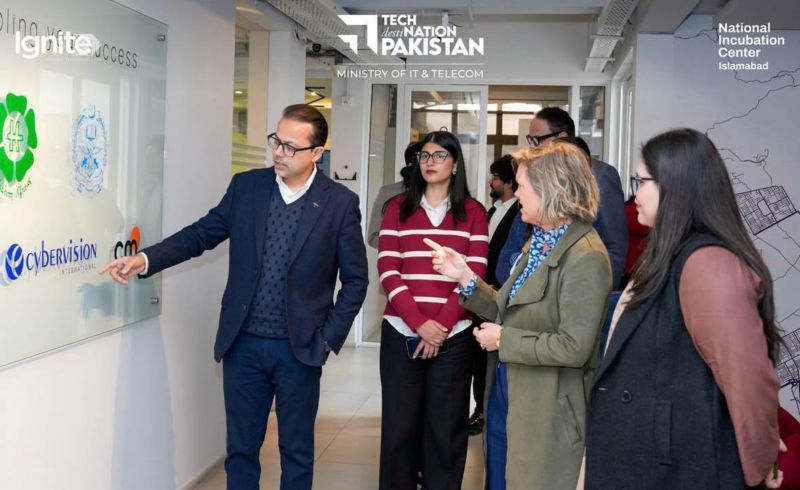From tax shifts to tightened compliance: Budget 2026 signals a new era for Pakistani startups navigating the digital economy.
The federal budget for FY 2025–26, presented under tight fiscal constraints and the shadow of IMF negotiations, is more than just numbers and taxes; it sets the tone for how Pakistan’s startup ecosystem will evolve in the coming year. For entrepreneurs, founders, and investors navigating an already volatile economic landscape, understanding what this budget means is critical for planning, scaling, and staying compliant.
In this article, we break down what startups in Pakistan really need to know about the new budget and what it could mean for the future of innovation in the country.
1. The Push to Formalize: E-Commerce Tax and Data Compliance
Perhaps the most important development for startups is the imposition of an 18% sales tax primarily on cross-border (foreign) e-commerce goods and large domestic platforms that facilitate the sale of goods and services This means e-commerce platforms, service marketplaces, and even small sellers using Instagram or WhatsApp will now be required to:
- Charge and collect 18% sales tax on all ecommerce transactions.
- Submit monthly tax returns.
- Share transactional and customer data with tax authorities.
For insight on Pakistan’s wider push toward digital infrastructure and growth, check out Pakistan’s digital economy roadmap covering the DFDI initiative
While this might seem burdensome for early-stage startups, it signals a clear government shift toward formalizing the digital economy. For compliant startups, this could level the playing field by reducing unfair competition from untaxed informal sellers.
Stat: Pakistan’s digital economy is expected to grow to over $12 billion by 2025, regulation was inevitable.
2. Simplified Tax Filing: A Small Win for New Businesses
To support small and medium enterprises, the government has announced a simplified tax filing system to be launched from July 2025. While full implementation details are pending, this aims to reduce paperwork and make it easier for businesses, especially bootstrapped startups, to stay compliant without legal or accounting teams.
3. Corporate Incentives: A Mixed Bag
The budget introduces a 0.5% reduction in super tax for companies earning between Rs 200–500 million annually. While this doesn’t directly affect very early-stage startups, it’s a positive move for scaling businesses approaching this revenue milestone.
In the longer term, the government plans to cap customs duties at 15% and eliminate regulatory duties over the next 4–5 years, which could benefit:
- Tech hardware startups.
- Renewable energy importers.
- Consumer electronics brands.
4. Green Energy Startups: New Incentives, New Barriers
The budget slaps an 18% sales tax on imported solar panels to promote local manufacturing. For startups involved in:
- Solar installations,
- Smart energy systems, or
- Microgrid technology,
This opens the door for domestic partnerships and local assembly ventures. However, import-heavy solar startups will face cost hikes.
Fact: Pakistan aims to generate 60% of its energy from renewable sources by 2030, and local innovation is key to achieving this.
5. Real Estate & Proptech: Easier Property Access
Withholding tax on property purchases is reduced (4% → 2.5% for filers), and new financing schemes like Mera Pakistan Mera Ghar will continue. Proptech and construction-tech startups may find new markets among young urban buyers and rental seekers.
6. Fintech & Financial Inclusion: BISP Expansion Creates Opportunity
The government has allocated Rs 716 billion to BISP, expanding coverage to 10 million families. This is a massive opportunity for fintech startups offering:
- Digital wallets.
- Lending and credit scoring.
- Micro-insurance.
- Digital literacy tools for underserved communities.
Partnering with BISP-linked programs or targeting beneficiaries with inclusive products could help scale impact and profit.
Stat: Pakistan has over 100 million unbanked adults —government-backed financial access can be a game-changer.
7. Carbon Levy and Energy Transition: New Openings for Cleantech
A carbon levy of Rs2.5 per litre on fuel (increasing to Rs5 next year) makes mobility and logistics more expensive. For startups, this creates two paths:
- Mobility startups will need to rethink unit economics.
- Cleantech innovators offering EV infrastructure, ride-sharing, or smart logistics could thrive as demand shifts.
8. Public-Private Opportunity: Privatization and Tech in Public Services
The budget includes plans to privatize key public sector enterprises, including:
- PIA (Pakistan International Airlines),
- Power distribution companies,
- Steel mills and more.
For startups in logistics, aviation tech, utility billing, or customer management software, this creates potential B2G contracts or co-investment opportunities as the government offloads operational responsibility.
Conclusion: Navigating the Budget, Strategically
This budget is not startup-friendly in a conventional way; there are no direct subsidies or funding schemes for tech or innovation sectors. But if viewed strategically, it offers two major advantages:
- Clarity and formalization, pushing startups to build compliant, scalable, and transparent models.
- Opportunities in sectors that intersect with state priorities, green energy, inclusive finance, local manufacturing, and public-private partnerships.
In the new fiscal year, successful startups won’t just be those with the best tech but those with the sharpest understanding of policy, taxes, and regulation.




